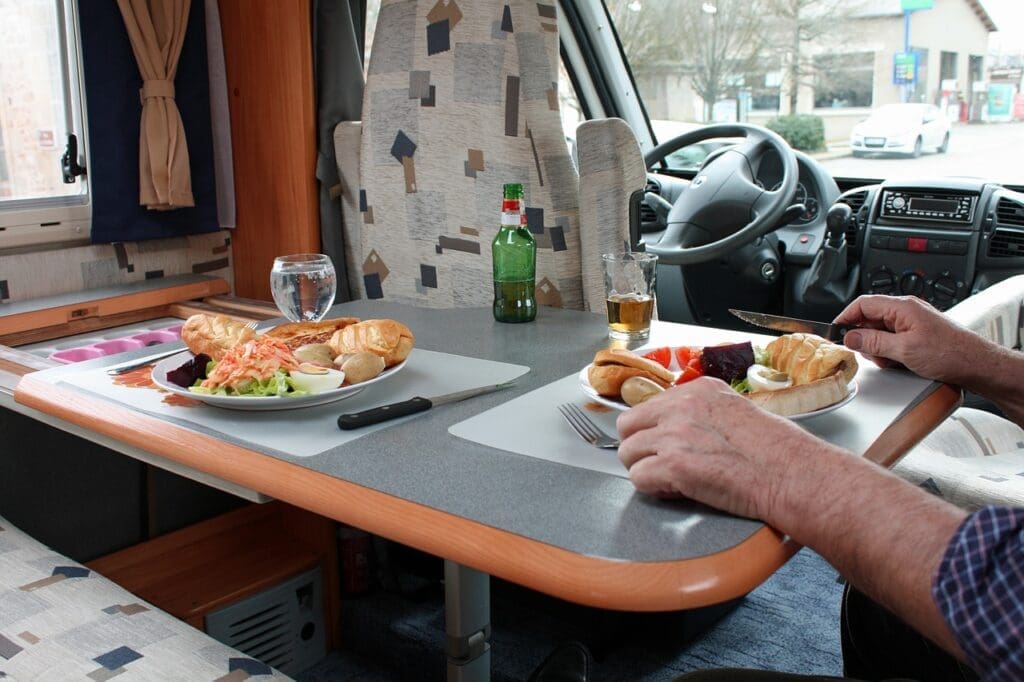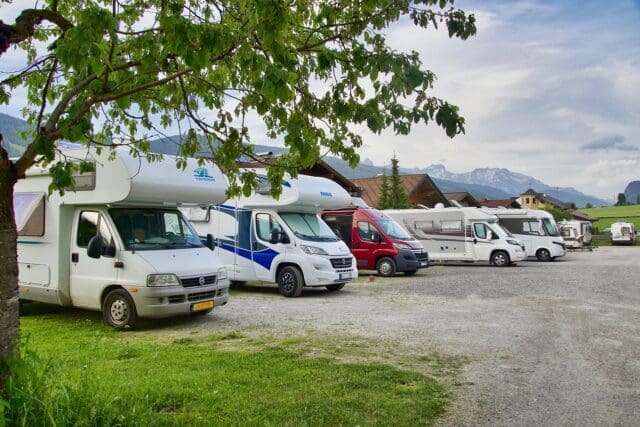If you have an RV or a motorhome, you should know that you need to insure it for its use. If you ask yourself, ‘what insurance do I need for my caravan,’ remember that the insurance is different if the caravan is parked all year round in a campsite or if we are talking about a caravan to continue traveling, it also varies if it weighs more than 750 kg or less.
The RV will be our home when we go with it on vacation or use it. In it, we carry our belongings, and that is why we must verify that our policy covers what we need, both the container and the content, in case of suffering a theft or an incident due to inclement weather. Together with Bestcarinsurancewsa, we want to tell you about the different caravan insurance.
Insurance for stationary RVs
If our RV is in a campsite parked all year round or in another fixed place, the price of the insurance varies according to the price of the RV or a trailer, as well as the advance and what it has inside the furniture and content.
Caravans that are towed or towed by a vehicle are considered trailers as long as they do not exceed a Maximum Authorized Mass of 750 kg (this weight includes the weight of the vehicle itself, that of the passengers, that of the transported goods, and the fuel). In this case, they do not require additional insurance; they will be covered by car insurance (provided that in your car insurance, you notify the user of the caravan, you have included the trailer as such, and the conditions of it mark it).
For RVs with a GVW of more than 750 kgs, you do need specific RV insurance. The motorhomes that are in campsites or fixed places have the same coverage as home insurance and, of course, most insurance covers the damages that most concern the owners: broken pipes, fire, theft, glass, damage in advance, as well as any damage caused by a meteorological phenomenon.
To take out insurance, we must take into account the use that we are going to give the caravan, the model of the caravan, the people who will travel in it, their ages, etc. Given this, we will have the option of taking out third-party insurance or full-risk insurance (which includes all third-party insurance and damage to the vehicle itself). We must also check if the travel assistance service is included (towing service, medical and hospital assistance, accommodation, or transportation costs to return to your home if you cannot use your caravan …).
All-risk insurance for fixed caravans will give us the peace of mind we need and will protect us from any incident. If our caravan is in a campsite, the insurance is always more complete and cheaper.
Some providers secure the continent (where the trailer is included), but also your pet and the content. It also covers civil liability, damages due to meteorological phenomena, fire, explosion, smoke, vandalism, flood, etc. You will have protection against theft or looting, broken pipes, broken glass and other components, appliances, and electrical installation, and much more, in addition to offering you a complete technical service, travel assistance, home, telephone, and legal assistance.
Insurance for traveling RVs (non-stationary)
If the RV is to travel, the price depends on the value of the vehicle and its weight, as well as the area of circulation (on which roads it will circulate, if it is national or foreign territory, etc.) and the age of the vehicle. The best insurance for caravans, if they are to circulate, are those in which the caravan is less than seven years old.
A motorhome has the status of a vehicle (halfway between the truck and the house). When driving with it, you need specific insurance. Motorhomes are more expensive to insure than any other type of vehicle. Not all companies have specific insurance for them since it is riskier to insure this type of vehicle.

Motorhome insurance should also include the contents of the RV and the breakage of glass. Other coverages that can be included are: acts of vandalism, damage due to atmospheric phenomena, civil liability, claim for damages, legal defense, and assistance. It’s a reminder to make sure to know what your coverage is from your insurance broker Great Frontier Insurance before setting off on the road!
What happens if your RV catches fire?
If the caravan catches fire, the insurer pays the value that the caravan has at the time of the fire. The insured must call his insurance company or his insurance broker to process the claim.
RV insurance policy vs. car insurance: What’s the difference?
RV and motorhome insurance usually include higher liability and is more expensive than ordinary car insurance. With ordinary car insurance, you are only buying insurance for your vehicle, but for an RV, you are buying a vehicle’s insurance and house insurance at the same time.
Since the owner is living in the RV and considers it a primary home, the cost of insurance is higher as it includes other coverage like fire, natural calamities, and other possible risks like burglary and looting.
As mentioned above, RV coverage can also be suspended when the vehicle is put in storage. Unlike an ordinary car that the coverage must continue whether it is parked or not.
There are several types of RV insurance as opposed to ordinary car insurance. This includes “Full-timers Insurance, Campsite-Liability Insurance, and RV Emergency Expense Coverage.” All of these are not required or available for ordinary car coverage.
The Full-Timers Insurance provides owner’s insurance to cover loss or damages similar to that provided to homeowners. This is because the owner is living full-time in the caravan and considers it home instead of just a vehicle.
The Campsite-Liability Insurance covers only loss or damages when the RV is parked in the campsite or RV parks. Most of the time, burglary is the main reason why this insurance is important.
The RV Emergency Expense Coverage has wider coverage than the two previously mentioned above. The owner has the choice of what to include in this type of insurance.
Featured Image by Siggy Nowak on Pixabay




